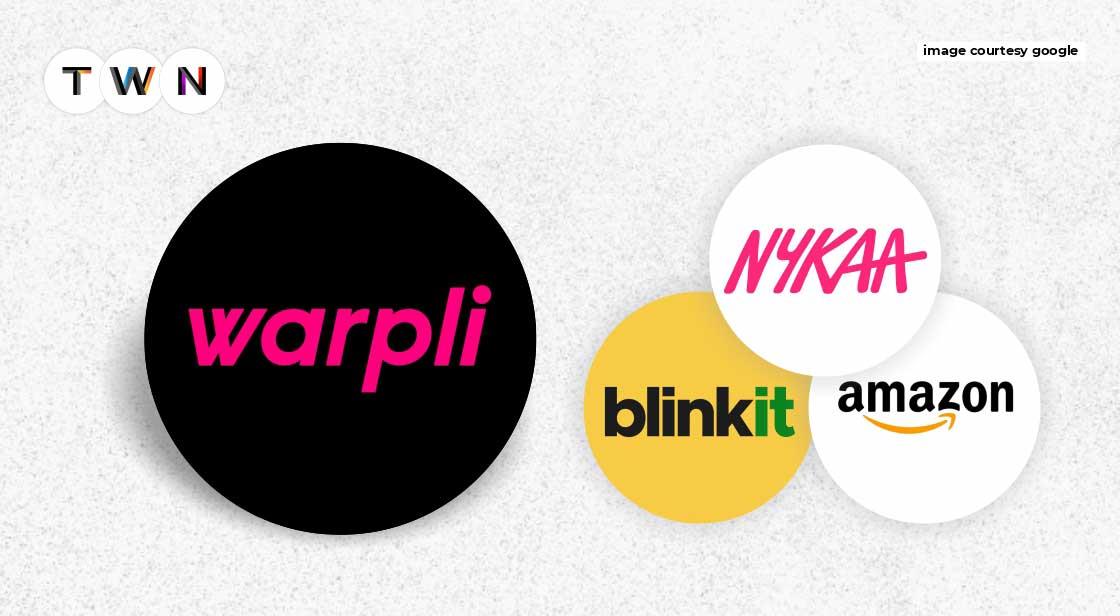
You have a closet full of clothes, but nothing to wear with your burgundy sandals? Isn't it fantastic to order a burgundy gown and have it delivered just in time for the big night? That's correct! You will receive your dress in 30 minutes, just as you will receive your groceries on the same day. How? Let's hear it from Mr. Saurabh Kumar, the former CEO of Grofers, who recently established Warpli, a new e-commerce company.
Warpli is a brand new e-commerce platform that has just launched in town.
Kumar, a co-founder of express-grocery company Blinkit (formerly Grofers) who departed the company last year, recently held a soft opening for his lateral quick-commerce company Warpli. To compete with the e-commerce behemoths, Warpli offers to deliver everything from clothing and shoes to coffee mugs and moisturisers with breakneck speed (hence the name). Will the newcomer be able to carve out a position in the USD60 billion lateral e-commerce sector, which is now adequately supplied by Amazon and Flipkart, despite signs of excessive heat in the quick-commerce section?
This is the most important question in identifying how this startup will set itself apart.
E-commerce companies that are quick and their testing
Following his unexpected resignation from Blinkit, Kumar declared his ambitions to launch a new e-commerce company last year. He resigned just as Blinkit, an online grocery delivery service, received money from food tech business Zomato and converted to horizontal quick-commerce under the moniker Blinkit (earlier Grofers).
Warpli, which employs around 15-20 people, has started with areas that are crucial to established businesses, such as electronics, clothes, and cosmetics.
Electronics make up 60-65 percent of Flipkart and Amazon's gross merchandise value (GMV), while fashion and cosmetics make up about 15%. Falguni Nayar's Nykaa, which had a successful public listing the year before, is used by over 10 million individuals. In an IPO, it raised USD700 million at a USD13 billion value. The common consensus in the e-commerce sector is that these things are not urgent, so customers are willing to wait for delivery. In addition, their business is structured in a multi-layered hub-and-spoke model. Vendors, or sellers, send their goods to central warehouses, from which the company ships them to the nearest stores or spokes, which are closer to the customers. A last-mile service provider must subsequently deliver the merchandise to the customers. The procedure would take two to four days on average.
Now that Warpli wants to be done with this cycle, it is concentrating on two models.
It allows brands and retailers to keep goods either on their premises or in the company's dark stores, which are close to customers. It has also simplified the product return process. Any undesirable items should be returned to the delivery man at the door. The item will be returned to its original location, which is the retail establishment, within the following 30 minutes. Mr. Kumar claims that it is beneficial to sellers because their inventory is not locked in the return process for days or months, as it is now the case in the e-commerce industry. It reappears and is immediately available for purchase.
According to reports, Warpli will charge shops a flat fee of INR50 for up to four kilometres of delivery and INR10 per kilometre after that. Merchants will be charged INR2 per cubic foot per day in rent for storing their goods in the gloomy stores. Sellers have also been promised that their payments would be processed within 24 hours and that no further commission will be charged. Payments and commissions, which can easily approach 30% to 35% of the product's cost, take 7 to 15 days to settle on Amazon or Flipkart.
For delivery, Warpli has teamed with Zypp Electric and is in talks with other hyperlocal logistics providers. It has no plans to cut its product pricing in order to entice buyers, but it will continue to alert merchants to market competitive rates in order to boost sales. Warpli wants to list millions of stock-keeping units (SKUs) because it will rely largely on local businesses for inventory, unlike other express e-commerce firms that supply groceries, such as Blinkit, Swiggy Instamart, and Zepto, which carry roughly 2,000-3,000 SKUs in a given dark store.
Warpli sees the defined consumer base of well-known e-tailers in categories like electronics, fashion, and beauty products as an opportunity rather than a challenge. Mr. Kumar claims that he wants to modify the shopping experience rather than the buyers' buying habits.
Tags:
e commerce firm, e commerce firm warpli, grofers saurabh kumar launched


Comments
Post a Comment